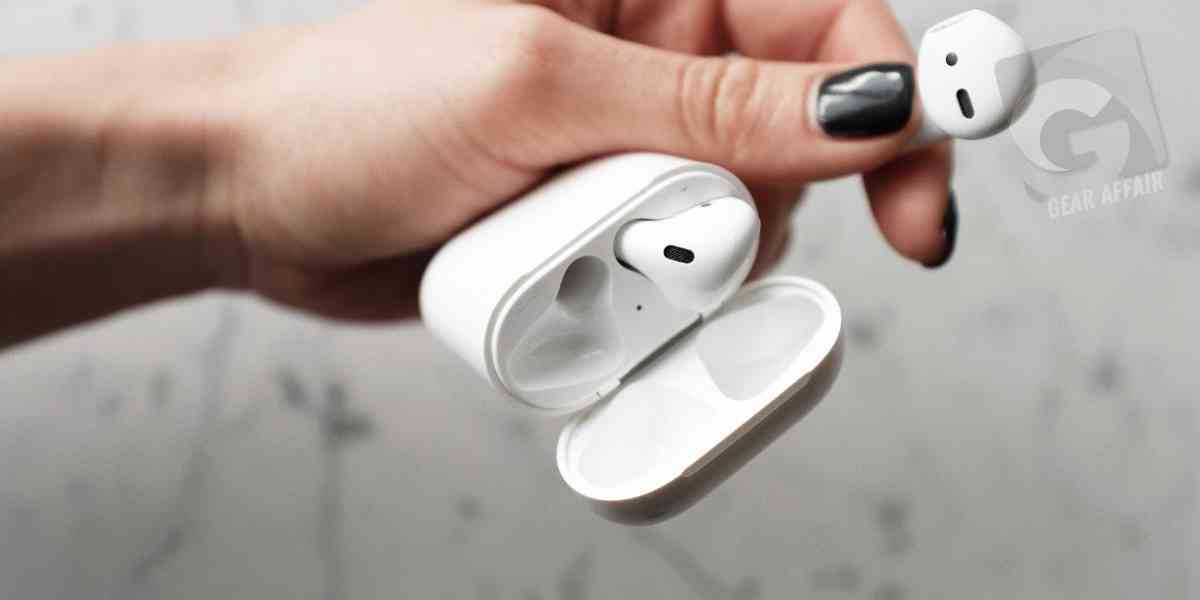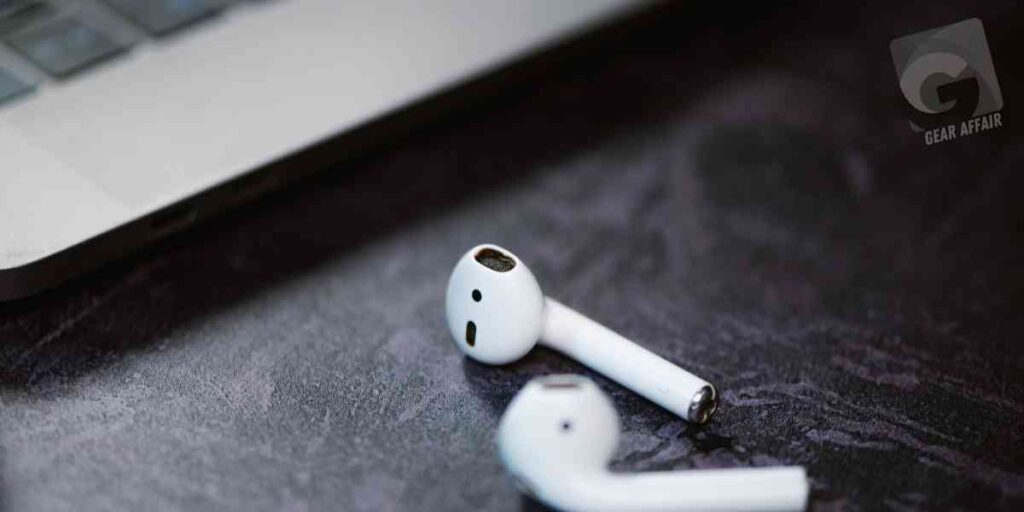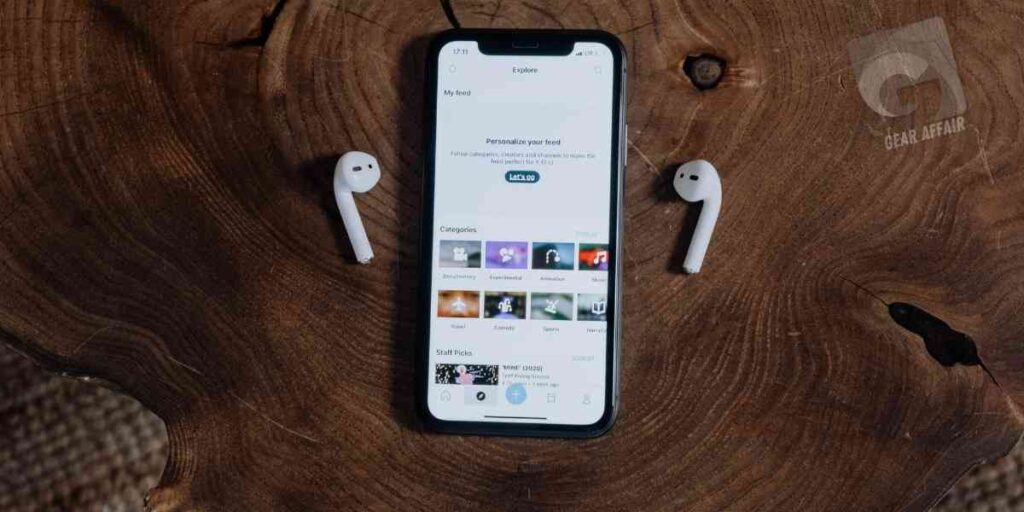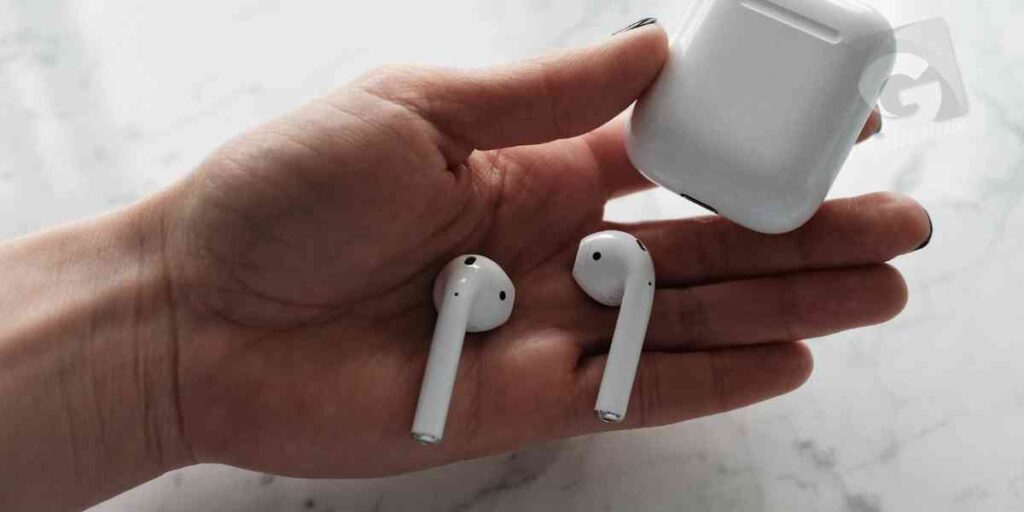Usually, one AirPod dies faster than the other because of the overuse of a single earbud. If the left AirPod is your favorite, you’ll find it draining faster due to overuse, same goes for the right AirPod. Other significant reasons include: exposure to extremely high or low temperatures, overcharging the AirPods, deep discharging, age of the AirPods, and manufacturing error.
Why Does One AirPod Die Faster
The main reason one AirPod dies faster than the other is the overuse of a single AirPod. In most cases, you’ll find that the right AirPod or left AirPod is the one with this problem because most people overuse a single AirPod.
If you find yourself charging one AirPod more, this battery will have increased used cycles which drastically reduces its performance. Because of your overreliance on a single AirPod, you find yourself charging it thrice or even more, on a day, which results in shorter AirPods battery life.
Another scenario is when you are used to using one AirPod and leaving the other plugged in AirPods charging case. Leaving your AirPods on the AirPod case for longer hours after being fully charged will significantly reduce the AirPods battery life and performance. Since AirPods use lithium ion batteries.
Find out how long do AirPods last here.

What To Do When One AirPod Die Faster
Those who have found themselves in such a situation have used different ways to solve the problem. First, try to troubleshoot the AirPods. If this proves helpful, well and good else you can try these ways.
In the AirPods settings in your phone, you can set play/pause on tap. With this mode on, both AirPods will drain the power at the same rate. Apple support won’t tell you of this, but it has helped many solve this problem.
Balance the usage of both AirPods. If you mostly use a single AirPods previously, utilize both AirPods from now on. Do not overwork one AirPod while the other is left unused.
During charging, make sure to unplug the AirPod case after they are fully charged. They may not overcharge, thanks to Apple’s optimized battery charging, but there are untold hidden effects of plugging them for longer hours.
Find out how long do AirPod pros last here.
How Do Apple AirPod Batteries Work
Apple AirPod, AirPod Pro, and AirPods Max use lithium ion batteries.
Electricity is the movement of electrons. When electrons move in a closed circuit, we call that electricity.
The Lithium-ion battery setup is composed of an anode, an electrolyte, and a cathode made of lithium metal.
During discharging, when the battery is being used, Lithium ions move from the cathode (negatively charged metal rod) to the anode (positively charged metal rod) through the electrolyte (the compound separating the anode and the cathode).
For every ion that reaches the anode, an electron is discharged from the anode through the connected circuit and to the cathode. Electrical circuits will manipulate these moving electrons to perform the desired function.
This process goes on until all lithium ions at the cathode are depleted (the battery is out of juice).
Charging the battery reverses these processes. The battery is fully charged when lithium ions are back at the cathode.
Find out are AirPods worth it here.
Why does Apple AirPod Use Lithium-Ion Batteries
Apple utilizes material with the best output and is lighter and smaller in making AirPod, AirPod pro, and AirPods Max, the reason, you know it.
As for Lithium, from the periodic table, you’ll find lithium has an atomic mass of 6.941 g/mol while lead is at 207.2 g/mol. Lithium is lighter than other metals that can be used in making batteries.
Another property that makes lithium the best option is its high energy density (a small-size Li-ion battery can store and produce high amounts of power). They charge faster but can hold more power. Lithium also releases electrons easily by producing lithium ions(high electropositivity).
To top it off, the Li-ion battery has a longer life span and does not require topping.
Find out are AirPod pros worth it over AirPods 3 here.
Pros Of Lithium Ion Batteries
- Lithium is lightweight. A battery made of lithium metal will be lighter thereby reducing the weight of the final device, AirPods, Phones e.t.c.
- Lithium has a high charge density. A smaller portion of lithium has a higher potential for storing power.
- The Li-ion battery charges fast and discharges slowly. This is why a 5-minute charge can last you an hour on your AirPods Pro.
- Longer lifespan. When you use your Li-ion battery according to the manufacturer’s instructions, it will take you a few years without any problems.
- It does not require topping. This is why it can be sealed in devices like AirPods and phones.
Cons Of Lithium Ion Batteries
- They are expensive. A Li-ion battery costs a lot when compared to other metal-ion batteries. It’s 3X pricier than lead-acid batteries.
- A completely discharged Li-ion battery may require technical assistance in charging it. Do not store your AirPods in a completely discharged state.
- They have shorter battery life. Lithium-ion batteries can only withstand a limited number of discharge cycles. When not properly used, this number is reduced to as low as 500 or less.
How To Troubleshoot Apple AirPod Battery Drain Issue
According to Apple, your AirPods should last for about 5 listening hours or 3.5 hours of Talktime. If yours are taking half the time, the following are the most common causes of this problem.
- Exposure to Extremely High or Low temperatures
- Leaving the AirPods Plugged in for a longer time
- Manufacturing error
- Your batteries are old
- Frequent deep discharging
Exposure to Extremely High or Low temperatures
Your AirPods pro may be waterproof, but unfortunately, they are not heatproof. Too much heat is harmful to the battery life of your AirPods. As you know, AirPods use Lithium ion battery.
When Lithium batteries are exposed to higher temperatures, above 45% on charging or 60% on discharging, the chemical reaction in the battery is interfered with.
The same is the case when you walk with the AirPods in very cold weather for long hours. AirPods are just like your body, they operate well when the temperature is optimum. Extremely lower or higher temperatures will damage the battery, and a damaged battery equals shorter battery life.
- Monitor the AirPods temperature during charging. If they are so hot, unplug them and leave them to cool before charging them.
- Do not stay in the hot sun or cold weather, with the AirPods on, for long hours. The AirPods, just like any solid, will absorb heat from the surroundings and the aftermath is AirPods battery drain faster.
- Keep the AirPods in their casings when not in use. The AirPods case has some heat-insulating properties and will keep your AirPods safe from the surrounding weather.
Leaving the AirPods Plugged in for a longer time
Did you know keeping your AirPods at 100% for a longer time(days) is harmful to their battery?
For optimum performance, the AirPods battery needs to be discharged and charged from time to time. Keeping the battery fully charged or discharged for a long time will damage the battery.
If you are fond of leaving your AirPods on charging for a full day, or even longer because they tell you that AirPods cannot overcharge due to optimized battery charging technology, they do not tell you the truth. Leaving them on charging for longer hours will reduce their battery performance.
The same is the case if you keep them at low batteries (or 0%) for a longer time. Keeping lithium-ion batteries at 0% is very risky. The battery will not recharge if it is kept in a discharged state for longer hours and in most cases, this will be the end for your AirPods as AirPods battery is difficult, almost impossible to replace.
There are some ways to overcome this.
- First, if you remove your AirPods from charging (or their case) they will drain some power. Do this from time to time if you are not using them for the time being.
- You can also have them play some audio from time to time.
- If your battery is low (0-10%), make sure to charge it before storing the AirPods.
Manufacturing error
Sometimes you buy the AirPods and find the battery is draining like crazy. It’s not because you have poorly maintained them. They are still new and yet they are lasting for only 2 hours or so. This has been the case for many people with AirPods’ battery issues.
In this case, the problem is most likely an error done during the assembly of the AirPods. Most likely an already damaged battery was used. The AirPods might also have been damaged while at the dealer’s warehouse/shop.
When this is the case, you can ask for a replacement. Getting a replacement from the Apple store when you bought the AirPods from a dealer may be difficult. So, you better reach out to the dealer you bought them from and have them replace the AirPods instead. The AirPods have a warranty period depending on the dealer you get them from so this may not be a big issue.
If you have an Upsie warranty or any other warranty, this is the best time to use it. Your Upsie warranty on AirPods should cover poor batteries or repair damaged batteries.
Your batteries are old
Li-ion batteries reduce their performance as time goes by. AirPods batteries in most cases will last you for 2-3 years depending on how well you maintain them.
It is estimated that the AirPods will last up to 1000 cycles. (A cycle is complete when the battery is fully charged from 0%. If you charge it from 50% to 100%, that’s a half cycle.) When these numbers of cycles are almost due, your AirPods will start to drain faster.
How long this will take depends on how often you use your AirPods. If you are the 24/7 type, your AirPods’ batteries will last a shorter time.
When your AirPods battery is aged, replacing them is a big problem. Most dealers do not offer battery replacement service, instead, they replace the AirPods with new ones. But if yours have aged beyond the warranty period, there is no salvation for you. You will have to buy a new pair.
Frequent deep discharging
If you are one of those who wait for the AirPods to notify you of a low battery before charging it, this is for you.
Deep discharge is when your battery is drained too low percentages, say, below 20%. What happens in deep discharge is, almost all the juice(lithium ions) in your battery are discharged from the cathode. As we know, charging will reverse the process.
The problem is when your battery is frequently deeply discharged the battery will have difficulties in operation leading to faster draining.
Make sure your batteries have enough power. Charge your AirPods anytime their battery is as low as 40%. Keeping them between 40% and 80 percent will better the battery life of your AirPods. Another advantage of keeping the battery power between these percentages is increased life cycles of the batteries.
Here’s your answer to the question of why are my AirPods so quiet and quick fixes.
FAQ
Now you got your answer to the question, why does one AirPod die faster. Try to balance the use of AirPods, do not overcharge or over-discharge them, monitor battery status, don’t leave them outside the AirPod case when not in use, and try to avoid exposure to extreme weather conditions and you should have improved battery life. If everything fails then contact apple support and let them examine the AirPods battery.





